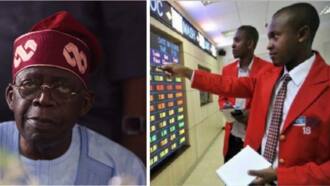[ad_1]
Money, in its various forms, holds an undeniable importance in our lives and society as a whole. It serves as a medium of exchange, a unit of account, and a store of value. Money facilitates economic transactions, shapes social structures, and influences our daily lives in numerous ways. In this comprehensive article, we will delve into the multifaceted importance of money, examining its role in personal finance, economic systems, social dynamics, and individual well-being.

Medium of Exchange and Economic Efficiency:
Money serves as a medium of exchange, allowing individuals to trade goods and services more efficiently than through barter systems. It eliminates the need for a coincidence of wants, enabling specialization, division of labor, and the efficient allocation of resources. Many users find some comfort in trying to increase their crypto investments in these ways, be it by trading with other investors or playing live baccarat on crypto-friendly platforms. By facilitating transactions, money promotes economic growth, productivity, and the development of complex market economies.
Unit of Account and Measurement of Value:
Money acts as a unit of account, providing a common standard for measuring the value of goods, services, assets, and liabilities. It simplifies economic calculations, facilitates price comparisons, and enables individuals and businesses to make informed financial decisions. The use of money as a unit of account enhances transparency, efficiency, and the functioning of financial systems.
PAY ATTENTION: Share your outstanding story with our editors! Please reach us through [email protected]!
Store of Value and Future Planning:
Money functions as a store of value, enabling individuals to save and accumulate wealth over time. By storing value in the form of money or financial instruments, individuals can preserve their purchasing power for future use. Money serves as a tool for financial planning, allowing individuals to allocate resources, invest, and prepare for contingencies such as emergencies, retirement, or education.
Economic Stability and Monetary Policy:

Read also
Naira not among top 10 weakest currencies in Africa as CBN continues to fight depreciation
The stability of money and monetary systems is crucial for economic stability. Central banks and monetary authorities implement monetary policies to regulate the money supply, manage inflation, and foster price stability. Stable money promotes investor confidence, encourages economic investment, and supports sustainable economic growth. Effective monetary policy plays a vital role in maintaining macroeconomic stability.
Social Mobility and Opportunities:
Money plays a significant role in social mobility and access to opportunities. Financial resources can provide individuals with education, healthcare, housing, and other essential services that improve their quality of life. Wealth accumulation can open doors to entrepreneurship, investment, and philanthropy, creating avenues for social advancement and empowerment.
Freedom of Choice and Autonomy:
Money provides individuals with the freedom to make choices and exercise autonomy in various aspects of life. Financial resources enable individuals to pursue their aspirations, make independent decisions, and fulfill personal goals. Money can offer a sense of security, independence, and the ability to make choices aligned with one’s values and priorities.
Impact on Individual Well-being:
While money alone does not guarantee happiness, it can significantly impact individual well-being. Adequate financial resources can provide access to better healthcare, education, and a higher standard of living. It can alleviate stress associated with financial insecurity, allowing individuals to focus on personal growth, relationships, and overall well-being. Financial stability can contribute to a sense of peace of mind and enhance overall life satisfaction.
Conclusion:
The importance of money extends far beyond its material value. Money serves as a medium of exchange, a unit of account, and a store of value, enabling economic transactions, promoting efficiency, and facilitating economic growth. It impacts social mobility, provides opportunities, and influences individual well-being. However, it is crucial to recognize that money should be viewed as a means to an end rather than an end in itself. Responsible management, financial literacy, and a balanced perspective are vital in harnessing the power of money to lead fulfilling lives and create positive change in society. By understanding and respecting the multifaceted significance of money, we can navigate its complexities, pursue financial well-being, and use it as a tool to enhance our lives and the lives of others.
[Sponsored]
Source: Legit.ng
[ad_2]
Source link







